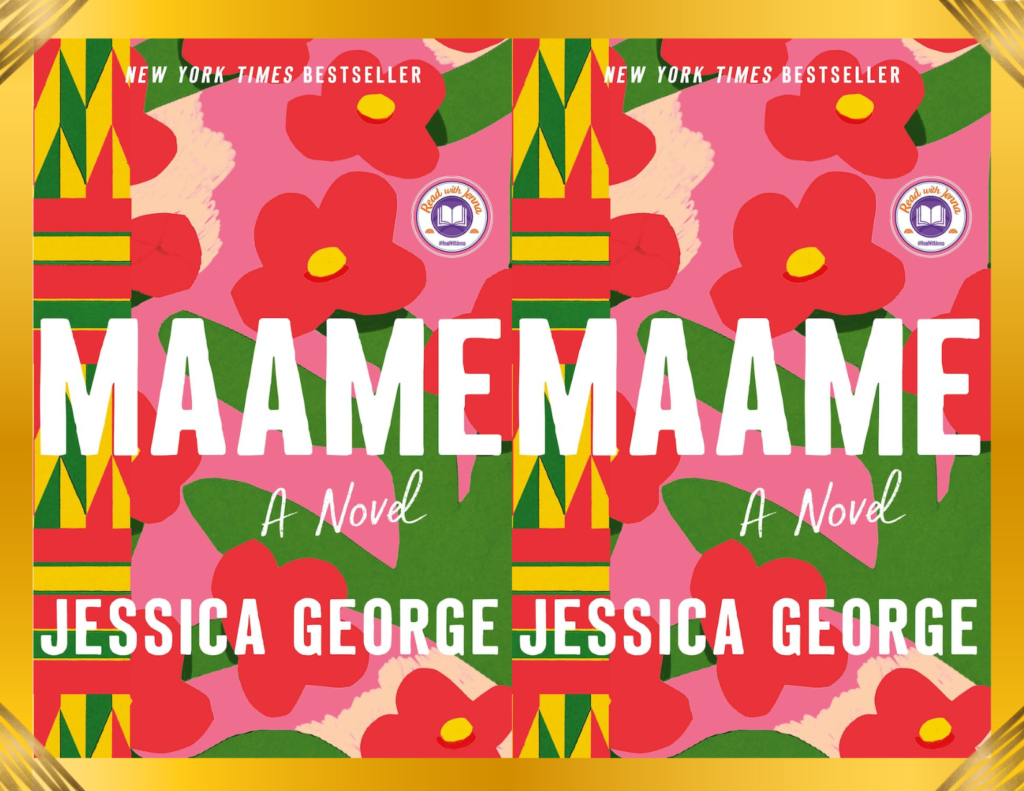The Winning Formula in Jessica George’s Debut novel, Maame

My initial intrigue with Jessica George’s debut novel, Maame, was twofold. Firstly, I noticed that it had taken Bookstagram feeds by storm. Fans posted photos of the book with aesthetically pleasing backgrounds and their captions included details about it being the latest read with apt treatment of grief, problematic romantic relationships, and the struggles of being a woman in her mid-twenties — all subjects and themes that typically interest me in contemporary works of fiction. The second source of my intrigue was learning that pre-publication in early 2023, George had landed a major two book-deal and screen adaptation for Maame that turned the author into a millionaire. And as an aspiring writer of West African descent myself, George’s Ghanaian roots added another layer of interest for me. It did not come as a surprise then that I wanted to join the conversation and pinpoint the unique combination of variables that afforded Maame success on many levels.
The novel follows the story of Maddie, a twenty-five-year-old British-Ghanaian woman who in her first-person narration, muses about her “life finally starting at age twenty-five, when [her] peers already have partners they want to marry and stable jobs with a clear trajectory” (64). By contrast, Maddie cares for and resides in London with her middle-aged father with Parkinson’s disease. From a young age, she was dubbed the titular Maame meaning, “the responsible one. The woman. The mother. Often before her time” (237). With time, it becomes clear that this Ghanaian twin moniker, ‘Maame’ is in fact an embargo on Maddie’s freedom, sense of self, finances, confidence and so much more.
The quest for freedom is thus one of Maame’s major preoccupations. Maddie is characteristically naive and lacks confidence, and the reader soon becomes empathetic toward her. She is often found clawing for security in relationships or in her inattentive and unappreciative bosses at work. This is why her frantic Google searches about the most mundane of things ranging from the likelihood of back pains in one’s twenties to first date expectations are at once hilarious and telling. Her quest for freedom is also tied to her happiness or lack thereof as seen in her wondering if she was “actually happy or just momentarily distracted” and that “maybe the latter is what happiness looks like for [her] now” (194).
Maddie also quickly becomes an unassuming tackler of the strong black woman trope in her observations about workplace politics especially as it applies to young black women. Conversations with her girlfriends achieve this and point to larger themes of femininity. Maddie is a foil to her few female friends who are more street-smart and experienced. Furthermore, her portrayal as a strong black woman in the novel is enabled by the portrayal of the men in her life who are all mostly disappointing. This is especially true for Maddie’s older brother, James, whose characterization I wish was sharper. And while it may be said that his character flipped the script of not carrying the stereotypical heavy shoulder akin to elder male siblings in African families, he seemed to exist purely for Maddie’s commentary on his uselessness. This portrayal greatly contrasts that of their overbearing mother whose overtly selfish tactics would make the reader cringe. She is in every way, however, the much-needed bringer of drama, the tester of Maddie’s patience and ability to overcome life’s curveballs.
I give Maame its much-needed flowers for its spot-on treatment of mid-twenties anxieties. Something that many have found a connection to if the bookstagrammer’s profiles are anything to go by. While reading, I had those “yes, girl!” or “preach!” moments when I read:
“I can’t carry on living believing human beings are as good as it gets. (…) We’re the worst” (155).
“Some things you’re not meant to be saved from (…) some things have to be lessons” (168).
“When someone doesn’t understand you, how you are, why you are, you will find yourself fighting losing battles every day” (58).
Many have noted that the 320-page narrative is comparable to Candice Carty-Williams’ Queenie and I second that for Maame’s weaving in of technology via texts and emails and its apt portrayal of a young, female and British protagonist who in seemingly every aspect of life has to work through having the shorter end of the stick. Maame is also reminiscent of Onyi Nwabenelli’s Someday, maybe for its treatment of the complexities of the subject of grief among other things.
Maame is successful for its engagement with topical subject matters that tackle topics of identity and mental health; for its chapters that read swiftly and mirror the episodic quality of modern television shows; for its narration in a clear, earnest voice that at once establishes the author Jessica George as one to watch.


